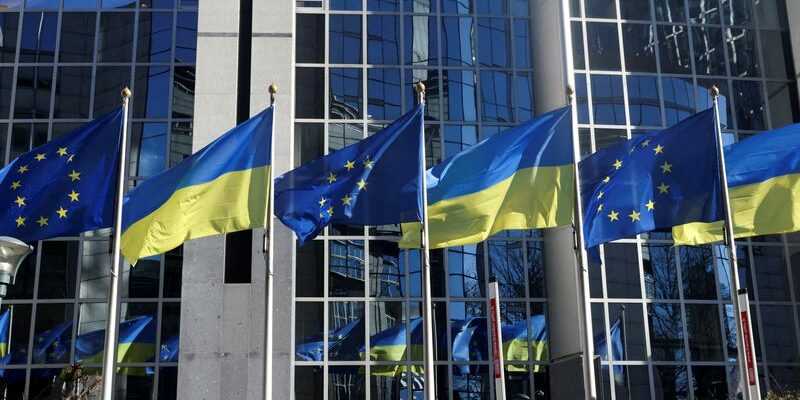BRUSSELS (Reuters) – The European Commission on Wednesday proposed suspending tariffs on all Ukrainian products for a year and lifting European Union anti-dumping and protective measures on steel exports from Kyiv, in order to supporting the country’s economy during the war with Russia.
These measures will apply in particular to fruit and vegetables, agricultural products subject to quotas, as well as certain industrial products, for which the taxes should initially be gradually raised by the end of the year as stipulated in the 2016 free trade agreement between the bloc and Ukraine.
Brussels will also exempt Ukraine from anti-dumping measures which notably limit steel imports.
Ukrainian President Volodimir Zelensky said he discussed the measures with European Commission President Ursula von der Leyen on Wednesday and expressed his gratitude to the EU.
“Presently, this will allow us to maintain as much as possible economic activity in Ukraine, our national production,” he said in a daily video address. “But this decision should be seen beyond the Ukrainian context,” he continued, describing the measures as important tools against crises.
It is now up to the European Parliament and the governments of the Twenty-Seven to approve this proposal so that the measures can be implemented.
The European Commission, which oversees the EU bloc’s trade policy, said the unprecedented measures were intended to relieve Ukrainian producers and exporters in the context of the conflict with Russia.
“Since the beginning of the Russian aggression, the EU has prioritized the importance of keeping the Ukrainian economy active – which is crucial both to help win the war and to recover from it”, said Valdis Dombrovskis, Vice-President of the Commission and Commissioner for Trade.
Last year trade between the EU and Ukraine amounted to more than €52 billion.
As the Black Sea sea lanes are now cut off by the Russian Navy, the EU has also taken measures to facilitate the land transport of Ukrainian goods, which involves easing the regulations applied to Ukrainian truckers, as well as the facilitation of transit and the use of European infrastructures.
(Report Jan Strupczewski, Philip Blenkinsop and David Ljunggren; French version Augustin Turpin, told by Jean-Michel Blot and Jean Terzian)
